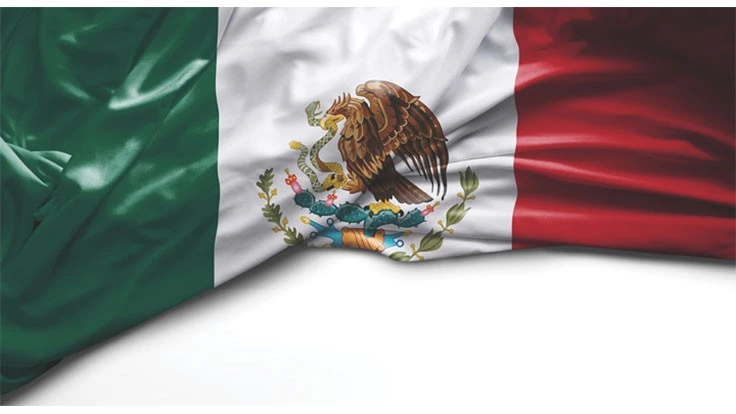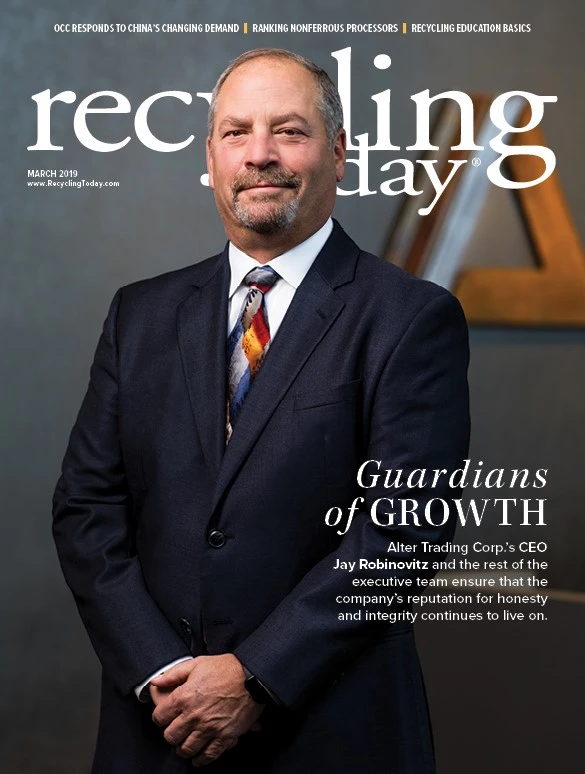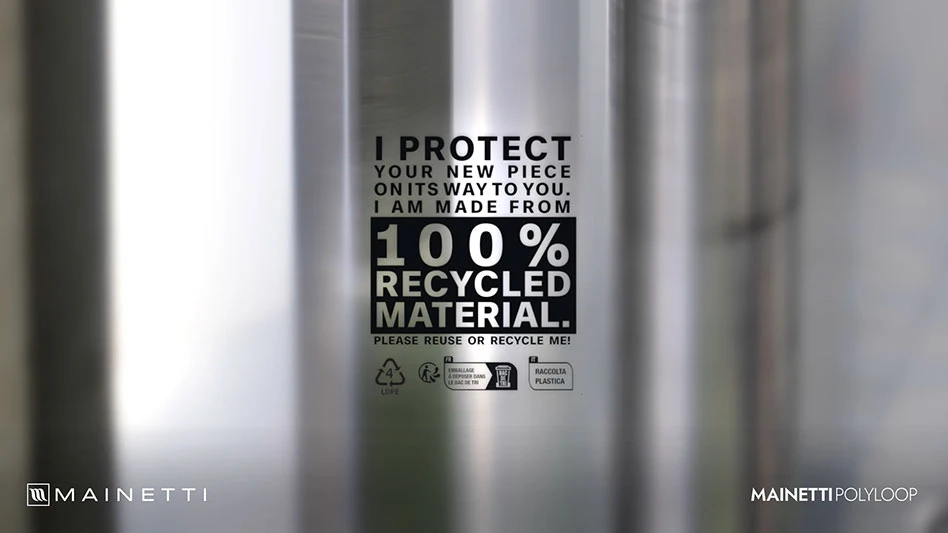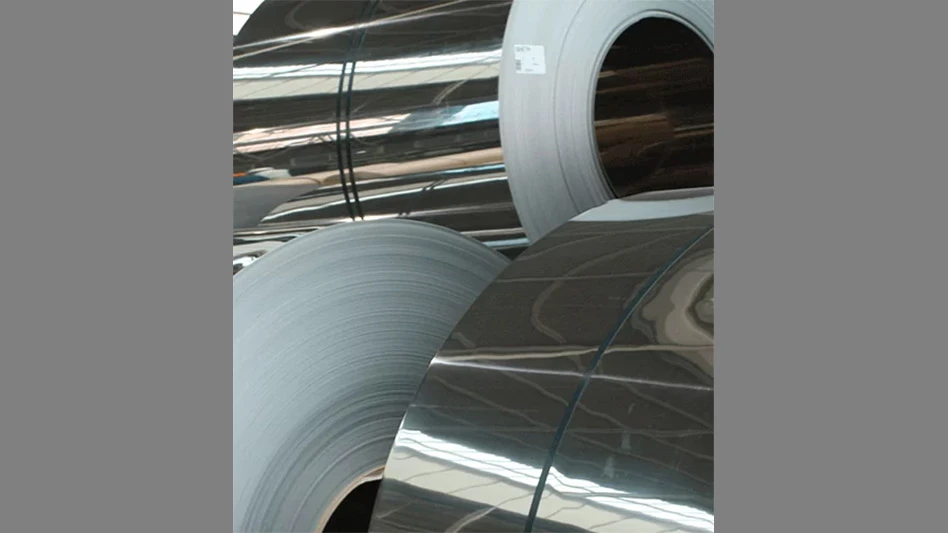
© filipefrazao / stock.adobe.com

During a trip to Haiti in January, Steve Wong, who founded and manages Fukutomi Co. Ltd., a Hong Kong-based plastics recycling company, met with Haitian Prime Minister Jean-Henry Céant to discuss developing an economic zone for recycling in the country. Wong says he hopes to start and grow a plastic recycling industry in Haiti as he did in China in the 1980s.
China’s restrictions and outright bans on imports of some recyclables, a trend that has been spreading across other countries in Southeast Asia, and trade tensions between the U.S. and China have led Wong to look for new places to operate his business. He compares the opportunity to operate in Haiti
Benefiting from China’s economy and export activity, Wong, who also is executive president of the China Scrap Plastic Association (CSPA), grew his business into a conglomerate with associated companies located around the world.
Over the years, he has become an expert on recycling low-grade plastic scrap with zero or negative value into “much more,” he says. Of course, investments in the right type of sorting equipment are necessary to aid in doing so, Wong says.
However, the altered global recycling market has changed everything.
The changes began with China’s ban on postconsumer plastic scrap imports, followed by restrictions and bans on low-grade scrap imports in other Southeast Asian countries. Additionally, the trade war between the U.S. and China has further hindered recyclers and processors whose businesses had relied heavily on trading plastic scrap.
As it becomes increasingly more difficult and costlier to trade material with China and other countries in Southeast Asia, “recyclers either need to quit the business or look for places they can operate,” says Wong, who has been busy restructuring his businesses and setting up operations in Haiti and Mexico.
More viable solutions
A prominent Vietnam-based nylon recycler, who wishes to remain anonymous, says he almost went out of business because of the import restrictions.
“For the past two years in Vietnam, it’s been on and off again. You can import. You can’t import,” Wong explains. “For
The import bans align with China’s long-term goal to improve the country’s environment and the health of its citizens, and Southeast Asian countries, such as Malaysia, are following China’s lead in banning imports because of environmental and contamination concerns. However, recyclers need consuming markets.
Wong and the nylon recycler, who is a customer of Fukutomi, have formed a joint venture to operate a recycling and processing facility for plastic scrap in Monterrey, Mexico. Equipment is currently being installed at the 60,000-square-foot facility.
The plant will recycle and reprocess nylon and other types of plastic scrap, such as acrylonitrile butadiene styrene (ABS) and polycarbonate (PC), into pellets to be used to manufacture new products.
“In the last few years, more and more factories are being set up in this country instead of the states because of the trade war,” Wong says of Mexico. He adds that the trade war “stopped certain people from processing in the states, especially [if] the goods [were] going to China due to the heavy import duty.”

He says of Mexico, “Over there, we can process without
Locating in Mexico also allows Wong and his partner to recycle material generated in that country. “Over there, there is much more source of material because of the automobile industry and electrical appliance companies,” he says.
Wong says he believes this will be the “trend of the future” as more recyclers within China move away from the traditional import-based recycling system and turn to more sustainable, viable options.
Caribbean planning
While Wong’s recycling operation in Mexico is a joint venture, over the last few months he also has been looking at the prospect of entering the recycling market in Haiti on his own.
He recently met with the country’s prime minister and other government officials to learn about Haiti’s political and economic history, as well as to discuss the opportunity to develop a special economic zone in the country, where Wong says recyclers would be able to import materials, process
However, Wong doesn’t just want to import and export material. His plan and vision for Haiti
“I think the main objective for them is to fight the inequality and also poverty,” Wong says of Haitian government officials.
The World Bank says Haiti is the poorest country in the Americas. According to a 2012 household survey (the most recent available), more than 6 million of Haiti’s population of 10.4 million, or 59 percent, live below the national poverty line of $2.41 per day, and more than 2.5 million, or 24 percent, fall below the national extreme poverty line ($1.23 per day).
Historically, Haiti has suffered from political instability and natural disasters. A catastrophic earthquake in 2010 killed 230,000 people, according to the Haitian government, and Hurricane Matthew in 2016 claimed the lives of more than 500 people and left 35,000 people homeless.

“Their poverty rates are quite high compared with other countries in the world,” Wong says. “Also, the infrastructure is not resistant to these natural disasters.”
Wong says he discussed China’s history, growth and the state of the recycling market with Haiti’s prime minister.
“In the ’80s, China brought in the recycling industry,” Wong recalls. “Not only
He says he has reached a stage in the Haitian project where he is “ready to bring in recyclers.”
The first phase of the project will establish a location and funding and develop the infrastructure. While touring parts of Haiti in February, Wong was shown an existing industrial zone, which has access to ports, that he could possibly build on.
“There are a couple of factories over there that make branded sportswear,” Wong says. “They’re also looking for secondary material to increase their recycled content, especially if they committed themselves to
Wong says he is looking to grow the recycling market in Haiti because of “the connection” he has with the people. He also believes Haiti is one of the only places that could follow the same model as China did in the 1980s and be successful.
“These are people I can talk to and feel the enthusiasm they have for the development,” Wong says. “It may take a couple of years to develop the infrastructure, but they are eager to develop with us.”

Explore the March 2019 Issue
Check out more from this issue and find your next story to read.
Latest from Recycling Today
- WasteExpo transitions to biennial format for enhanced experiences
- Study highlights progress, challenges in meeting PCR goals for packaging
- Washington legislature passes EPR bill
- PureCycle makes progress on use of PureFive resin in film trials
- New copper alloy achieves unprecedented high-temperature performance
- Gränges boosts profits and sales volume in Q1 2025
- RMDAS April figures show recycled steel price setback
- Steer World offers PEX plastic recycling machine





